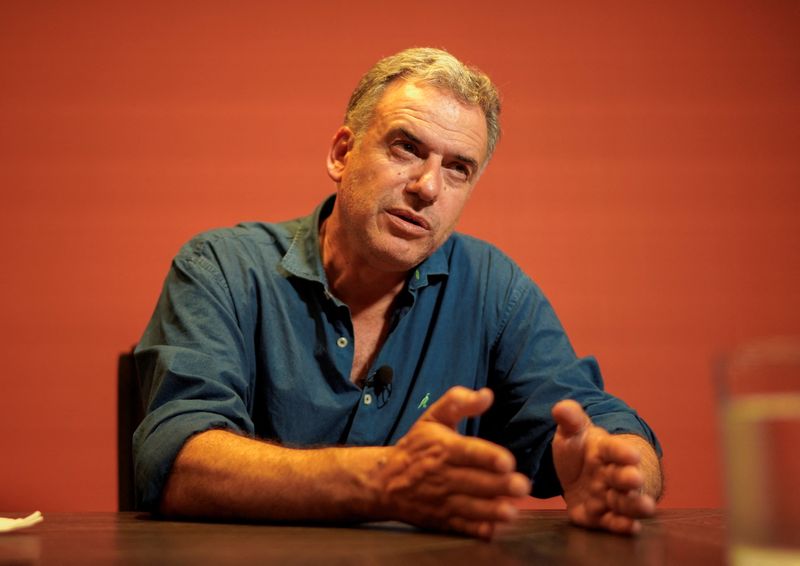By Lucinda Elliott
MONTEVIDEO (Reuters) - Uruguay's center-left presidential candidate Yamandu Orsi, the frontrunner in polls ahead of elections this month, plans to avoid unpopular tax hikes despite a growing deficit, instead looking to spur faster economic growth in the farming nation.
In his first interview with international media ahead of the Oct. 27 first-round vote, the 57-year-old former regional mayor played down fears his government would try to boost tax takings by raising levies on the rich or on companies that some fear would hit the country's investor-friendly reputation.
"I don't see the need to increase taxes," the candidate for the left-leaning Broad Front coalition told Reuters in capital Montevideo. Orsi will take on the ruling conservative bloc's candidate, Alvaro Delgado, in the Oct. 27 election.
"What is necessary is growth and to make the economy grow."
Economic growth in the relatively wealthy farming nation of 3.4 million people slowed last year, though it is on track to pick up again in 2024. It has posted regular fiscal deficits, which analysts say any new government will need to address.
"The current account deficit has worsened over the past year," said Uruguayan economist Maria Dolores Benavente. "That indicator is the only Achilles' heel Uruguay has."
Investment bank J.P. Morgan wrote in an October note that the new government would need to push forward "structural reforms" to prevent the fiscal deficit from widening.
Orsi, however, indicated he would not bow to that pressure.
He said that cutting state jobs and raising taxes were not the solution to tackling the deficit. His government would instead look to boost growth via innovation and technology, attracting investment and upskilling workers, he added.
The former history teacher also signaled he could tap the brakes on a push by the current conservative government for a free-trade agreement with China, focusing more on deals via the regional Mercosur trade bloc and giant neighbor Brazil.
"We must always work to be within the limit of what Mercosur allows us, without going beyond it," he said, referring to the bloc that includes Argentina, Brazil and other nearby countries. He said breaking away from the bloc would be "absurd" and "unrealistic."
He added, however, that the door would always be open to investment from China, Uruguay's largest trade partner. "Let's not forget that the Chinese have the Belt and Road proposal, that is very useful to us," he said, referring to China's initiative to connect Asia with Europe and Africa via land and maritime networks.
Uruguay's current president, Luis Lacalle Pou, has stoked tension with other Mercosur members with his plans for trade deals outside the bloc. Critics of Mercosur say it holds Uruguay back from boosting its exports of products like beef and soybeans. Lacalle Pou remains popular but Uruguay's constitution does not allow leaders to run for immediate reelection.
The latest election polls in Uruguay put Orsi slightly ahead of Delgado of the center-right National Party for the Oct. 27 vote, though the surveys indicate that a run-off election would be likely. That would be held in November.
Orsi, who has won backing from iconic leftist ex-President Jose "Pepe" Mujica, has riled some in Uruguay with an ambiguous view on Venezuelan President Nicolas Maduro, who has faced growing criticism after a disputed election in July.

Orsi told Reuters that the July election was "more than suspicious" and lacked democratic legitimacy, calling Maduro's government an "authoritarian regime." However, he did not rule out inviting Maduro to his inauguration if he wins the election.
"When the time comes, we'll see who is invited and who isn't," he said. "These things have to be considered."
